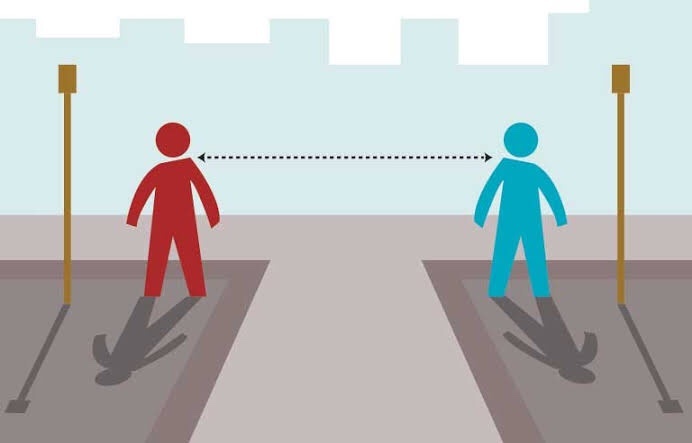
Since the outbreak of Corona virus pandemic, the World Health Organization(WHO) and Center for Disease Control (CDC) recommended social distancing as a measure to mitigate the spread of the virus.
What is Social Distancing?
Social distancing is a measure taken to reduce or stop the spread of contagious diseases. It is also known as physical distancing. It aims at reducing the probability of contact between persons carrying an infectious disease and persons who are not to minimize disease transmission, morbidity and ultimately, mortality.
Social distancing is effective when the disease can be transmitted through droplet contacts, direct physical contact, indirect physical contact or airborne. However if the disease can be transmitted through contaminated water or food or by vectors social distancing is not effective.
Guides to Social Distancing
Some of the measures to be taken for effective social distancing is cancellation of social gatherings like schools, work places, churches, mosques, concerts, markets and places with high probability of disease spread due to crowd influx.
Greetings are limited to waving, namaste, the all good nod and all other forms of greetings that doesn’t involve physical contacts. Handshakes, hugs and kisses are avoided.
People are advised to
- stay away from public places like bars, markets, party, concerts and so on.
- It is advisable to keep a safe distance of up to 2meters.
- Wear nose masks,
- wash your hand regularly with soap and water or use hand sanitizer.
- Avoid public transport.
- Don’t go out if it’s not necessary
- Work from home if you can
How effective is Social Distancing?
Social distancing is very effective in disease control though has economic costs as economic activities are suspended in the process. Research indicates that social distancing must be implemented immediately to mitigate the spread. However, if social distancing is not implemented, the spread of the disease could double by three to five times.
The study of the 1918 epidemic in United States indicates that social distancing reduced mortality rate by 10-30% because social distancing was implemented late and lifted early. Mathematical models shows an epidemic can be controlled and slowed down by closure of schools and work place.
In 1957, Asian flu was controlled by 90% using social distancing and up to 50% in controlling influenza in the US, 2004–2008. During the swine flu outbreak in 2009, the United Kingdom closed down schools to slow down the spread of the disease.
In 2020, the WHO and CDC recommended social distancing as an unavoidable means to slow down the spread of the novel Corona virus. They recommended that schools, workplaces, churches, markets, bars and all recreation centers be closed down.
Travel restrictions is also in place to reduce the spread of the virus.
